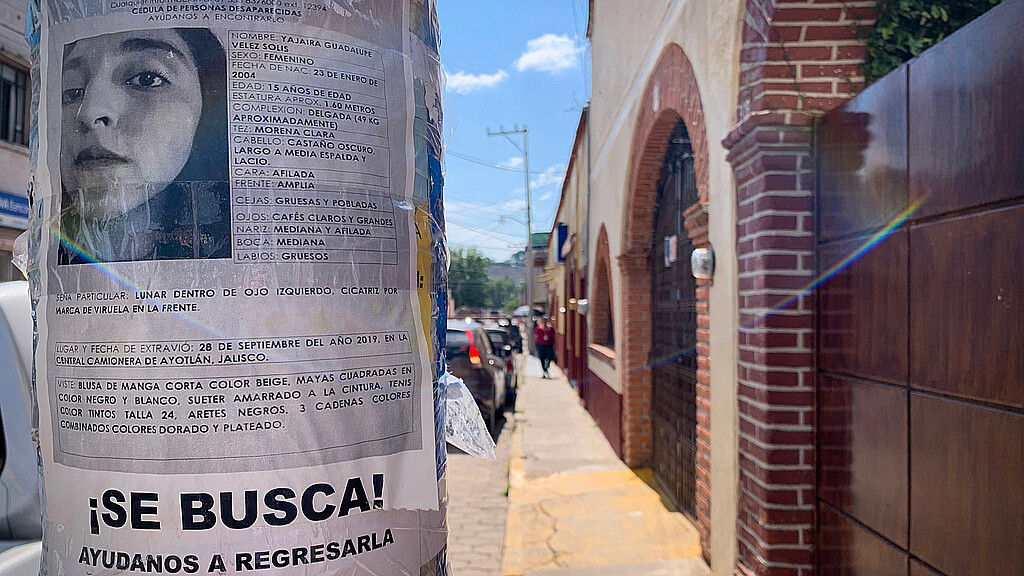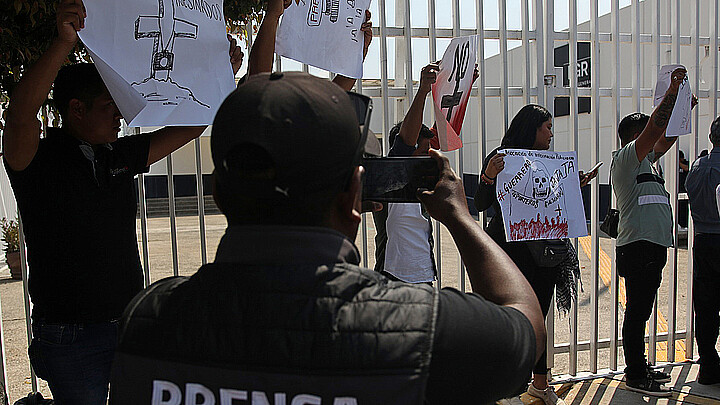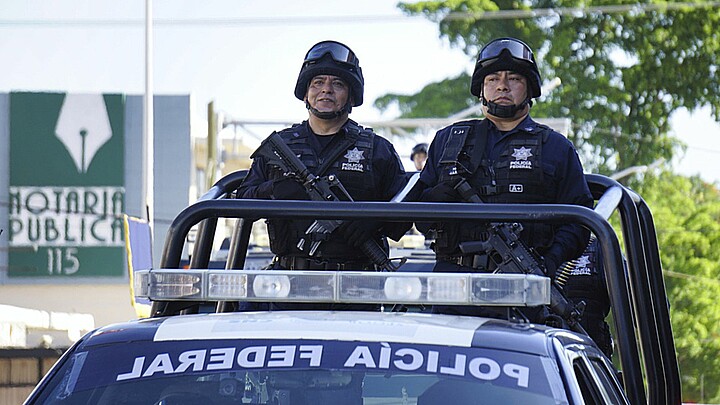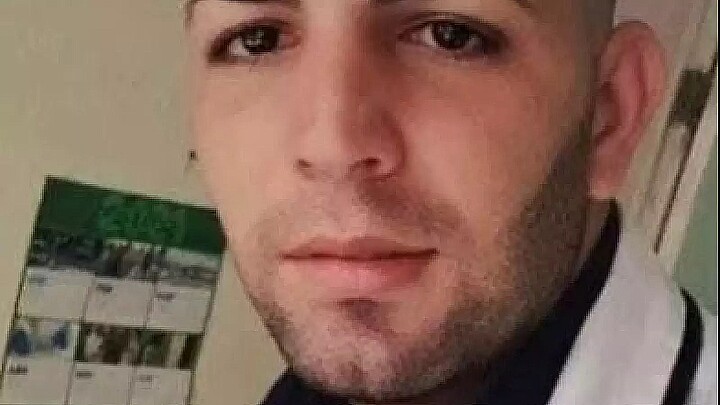Crime
Concerned mothers demand Mexican officials find missing children amid disappearance epidemic
Mexico has been using artificial intelligence system and other database technologies to find an estimated 110,000-112,500 missing persons

August 31, 2023 9:02am
Updated: August 31, 2023 9:32am
Mexican mothers of missing chilled marched on Wednesday to memorialize the International Day of the Disappeared, heralding a call to authorities to find their loved ones.
ADN first reported in January that Mexico was turning to an artificial intelligence system called Angelus 2.0 and other database technologies to find an estimated 110,000 missing persons. That number has been reported as 111,000 by NBC Latino News and even as high as 112,500 by other sources.
Mexican government officials have said they believe many who have disappeared were kidnapped by drug cartels or professional abductors, and their remains were either buried burned or left in shallow graves.
The new technology launched earlier this year, Angelus, is focused on reviewing facts about people who disappeared between 1964 and 1985 since it was a period when disappearances reportedly surged. The AI software collects basic facts about the missing person such their last known location, the identities of potential witnesses or the name of co-residents and even cellmates if they were ever imprisoned.
ADN subsequently reported that the National Forensic Data Bank was set to launch on May 29, as part of a mandate that was legally passed in Mexico in 2017.
Many of the protestors marched down Mexico City’s main boulevard expressed their dismay at the government’s inaction.
An estimated 200 protesters, mostly mothers shouted, “Where are they? Where are our children?”
One mother of two, Edith Pérez Rodríguez wore a T-shirt sporting pictures of her two sons, José and Alexis Arturo Domínguez Pérez.
The two boys went missing about 10 years ago in the northern state of San Luis Potosi.
In an attempt to quell public perception about the crisis, MORENO Party leader and Mexican President Andrés Manuel López Obrador has speculated that the number of missing is less than the official numbers.
The embattled Mexican president has argued that many youth who went missing for a period of time most likely returned home but didn’t report their new whereabouts to police.
To prove his point, he has initiated a nationwide door-to-door effort by using both civilian and military, asking residents if any of their missing relatives came home. They have also tried checking the names of those missing against vaccination rolls to pinpoint last whereabouts.
Those efforts arose partially because police and prosecutors have complained that low funding has left their hands tied, making it difficult for them to conduct regular searches.
They too, have also relied on civilians, mostly concerned mothers to help them by walking through suspected makeshift graveyards with shovels, pushing long steel rods into the ground to see if there are any corpses buried there.
“If we don’t search for our children, nobody will do it,” said Pérez Rodríguez reports NBC Latino.
“What are they going to do?” making the point that each government agent has an estimated 50 missing persons cases with little time to conduct a comprehensive investigation.
Concerned mothers and other family members have argued say that more government money and initiatives should be redirected to help find those who have disappeared.
“That is why we are here,” Pérez Rodríguez explained, “to tell the president these numbers are not inflated. This is the reality,” she said, pointing to dozens of other protesting mothers.
Other marches were held in additional Mexican cities.
Another mother, Irma Guerrero, told NBC Latino that she has been desperately searching for her son, David, who disappeared in San Luis Potosi on Jan. 13, 2022.
Sadly, she said she has received “nothing, not from anyone” in the way of help.
When NBC asked Guerrero what she thought of the resignation of Mexico’s top search official, Karla Quintana, last week over the allegations numbers were being manipulated, she showed little interest.
ADN reported the resignation last week, quoting Quintana admitting that she was stepping down “in light of current circumstances” without elaborating on the subject.
“The challenges surrounding the disappearance of people remain,” she posted on X, the social platform formerly known as Twitter. “The State must continue to push for a comprehensive policy geared toward prevention, searching and fighting impunity.”
Guerrero said that, “none of the officials have helped us. Only the bad guys know, and they don’t help us.”
When Quintana resigned, she did not explain why, but Mexican media reported that under her leadership, the agency manipulated data, and that she also sent unqualified personnel to interview victims’ families, a sore point with mothers who felt some of the interrogations were upsetting.
Many of the concerned mothers believe their children are still alive or safe somewhere.
“Few doubt there may be people listed as missing who have returned home. But many also believe that a similarly large number of missing people in Mexico’s most violent regions may never have been reported by their relatives, either because of fear of reprisals or distrust of authorities. That distrust is widespread,” NBC Latino reported.
When the Data Bank was first launched in May, hopes were high.
“Much remains to be done and this announcement is certainly a first step,” human rights group Centro Prodh said in a tweet back in May when the data bank was launched. “The FGR has finally recognized its responsibility.”











